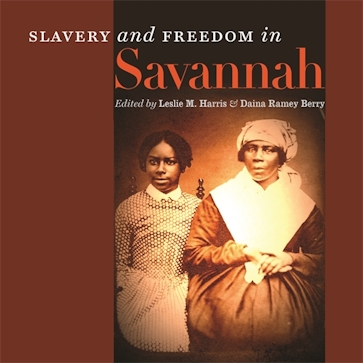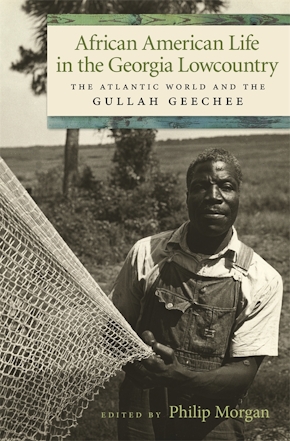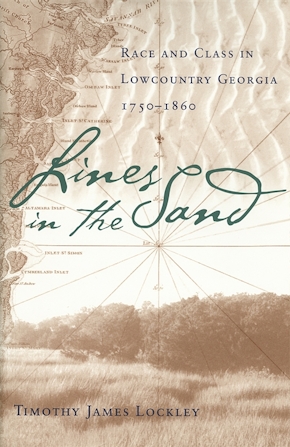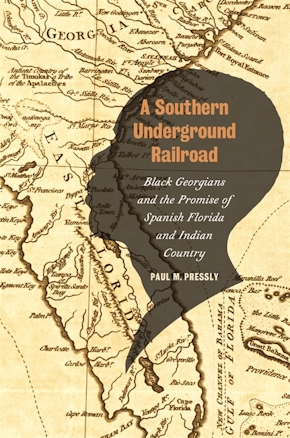Slavery and Freedom in Savannah
Title Details
Pages: 288
Illustrations: 58 b&w photos
Trim size: 8.000in x 8.000in
Formats
Paperback
Pub Date: 02/01/2014
ISBN: 9-780-8203-4410-2
List Price: $36.95
eBook
Pub Date: 02/01/2014
ISBN: 9-780-8203-4706-6
List Price: $36.95
Subsidies and Partnerships
Published in association with Telfair Museums
Published with the generous support of U.S. Institute of Museum and Library Services
Related Subjects
HISTORY / United States / 19th Century
HISTORY / United States / State & Local / South (AL, AR, FL, GA, KY, LA, MS, NC, SC, TN, VA, WV)
Other Links of Interest
• Learn more about slavery in Antebellum Georgia at the New Georgia Encyclopedia
Slavery and Freedom in Savannah
Skip to
- Description
- Reviews
- Awards
- Contributors
Slavery and Freedom in Savannah is a richly illustrated, accessibly written book modeled on the very successful Slavery in New York, a volume Leslie M. Harris coedited with Ira Berlin. Here Harris and Daina Ramey Berry have collected a variety of perspectives on slavery, emancipation, and black life in Savannah from the city’s founding to the early twentieth century. Written by leading historians of Savannah, Georgia, and the South, the volume includes a mix of longer thematic essays and shorter sidebars focusing on individual people, events, and places.
The story of slavery in Savannah may seem to be an outlier, given how strongly most people associate slavery with rural plantations. But as Harris, Berry, and the other contributors point out, urban slavery was instrumental to the slave-based economy of North America. Ports like Savannah served as both an entry point for slaves and as a point of departure for goods produced by slave labor in the hinterlands. Moreover, Savannah’s connection to slavery was not simply abstract. The system of slavery as experienced by African Americans and enforced by whites influenced the very shape of the city, including the building of its infrastructure, the legal system created to support it, and the economic life of the city and its rural surroundings. Slavery and Freedom in Savannah restores the urban African American population and the urban context of slavery, Civil War, and emancipation to its rightful place, and it deepens our understanding of the economic, social, and political fabric of the U.S. South.
This project is made possible by a grant from the U.S. Institute of Museum and Library Services. This volume is published in cooperation with Savannah’s Telfair Museum and draws upon its expertise and collections, including Telfair’s Owens-Thomas House. As part of their ongoing efforts to document the lives and labors of the African Americans—enslaved and free—who built and worked at the house, this volume also explores the Owens, Thomas, and Telfair families and the ways in which their ownership of slaves was foundational to their wealth and worldview.
—Betty Wood, author of Slavery in Colonial America, 1619–1776
—Tiya Miles, author of The House on Diamond Hill: A Cherokee Plantation Story
—Antoinette T. Jackson, Journal of Southern History
Winner
Lilla M. Hawes Award, Georgia Historical Society
Winner
Award for Excellence in Research, Georgia Historical Records Advisory Council
Winner
Award of Merit, American Association for State and Local History
Daina Ramey Berry
Jonathan M. Bryant
Bobby J. Donaldson
Leslie M. Harris
Jacqueline Jones
Timothy James Lockley
Susan Eva O'Donovan
Janice Sumler-Edmond
Jeffrey Young
James A. McMillin



